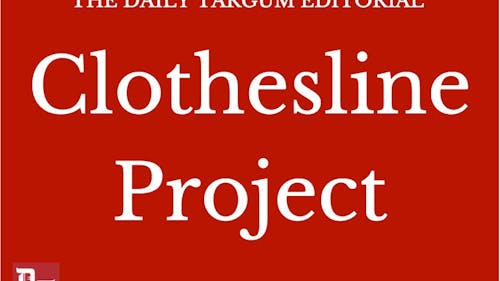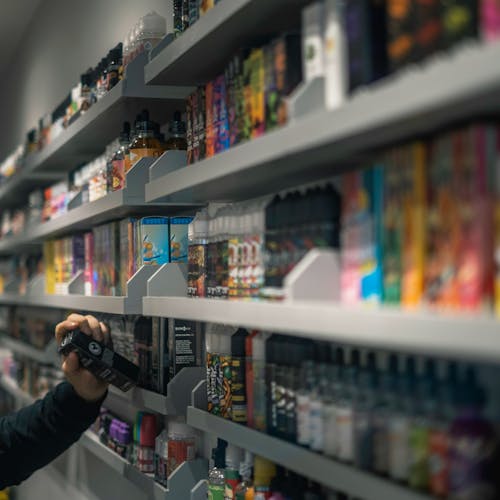EDITORIAL: Clothesline Project shows shirts, stories

One in three women and one in four men are reported to have experienced some type of physical violence by an intimate partner. You hear statistics like this all the time, but you hardly hear the stories behind the numbers. Rutgers is changing that.
Today, the Rutgers University Office for Violence Prevention and Victim Assistance (VPVA) is hosting its annual Clothesline Project event. This project has been a tradition since the 1990s with a mission to bring awareness to campus about the range of violence people experience in their communities. By allowing students to publically share their experiences on a shirt that will be hanging on a clothesline, VPVA is bringing the humanity to the statistics. And they are also giving students the opportunity to heal with one another.
The Clothesline Project is a platform for those who have been affected by “any kind of interpersonal violence.” This means that anyone who has experienced rape, incest, molestation, sexual assault, domestic violence, dating violence or any physical abuse or psychological manipulation, can go to Voorhees Mall on the College Avenue campus and find a sense of community in a way that they may not have imagined. In fact, the Clothesline Project is completely unique from any other VPVA event or seminar.
The event is not just an informational session about bystander intervention — although those seminars are just as important. Instead, it is an entity of its own, not needing any additional information. The shirts can stand alone because what is written is enough of an explanation on its own. Students write a range of things from words of support to messages to their abusers, creating a powerful impact on every passerby.
But some people may feel as though the messages are too powerful, too taboo. It is no doubt that some of the messages that are written on the shirts can cause discomfort or make people feel awkward.
In regards to people feeling uncomfortable, sexual and emotional abuse are not supposed to make you feel comfortable in the first place. These are horrible crimes that traumatize people, sometimes, for the rest of their lives. By feeding into the idea that stories such as those should not be told or shown in public, the ideology of avoiding them becomes the norm. And making something taboo is not going to stop it. Sexual and emotional abuse cannot be eradicated if cases of their occurrence are shielded from the public. These stories need to be told in order for people to understand the pain and distress that are felt by their peers around them in silence. So yes, the shirts may be very intense, but so is the subject matter they cover.
Another concern is that some people may feel triggered by the some of the stories on the shirts. This is understandable, but the main take-away that this event is trying to give you is that you are not alone. When you look at the Clothesline Project, you are not just looking at painful stories of devastating experiences — you are looking at hundreds of survivors. If you have experienced any form of sexual, physical or emotional violence or abuse, VPVA wants you to know that although you may not want to share your story, there are others that will share their own for you. And perhaps through community and empathy, coping and healing can get just a little bit easier.



